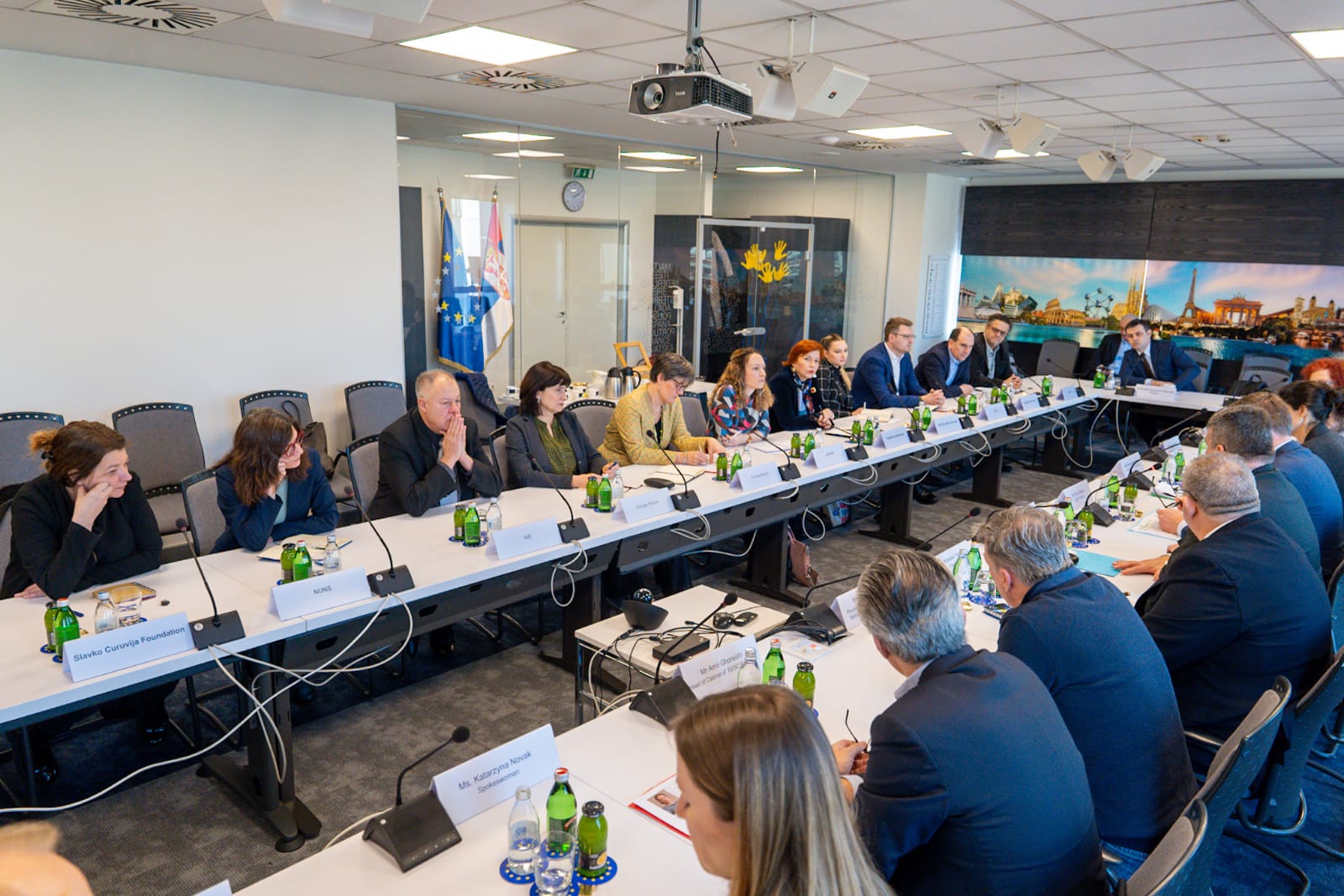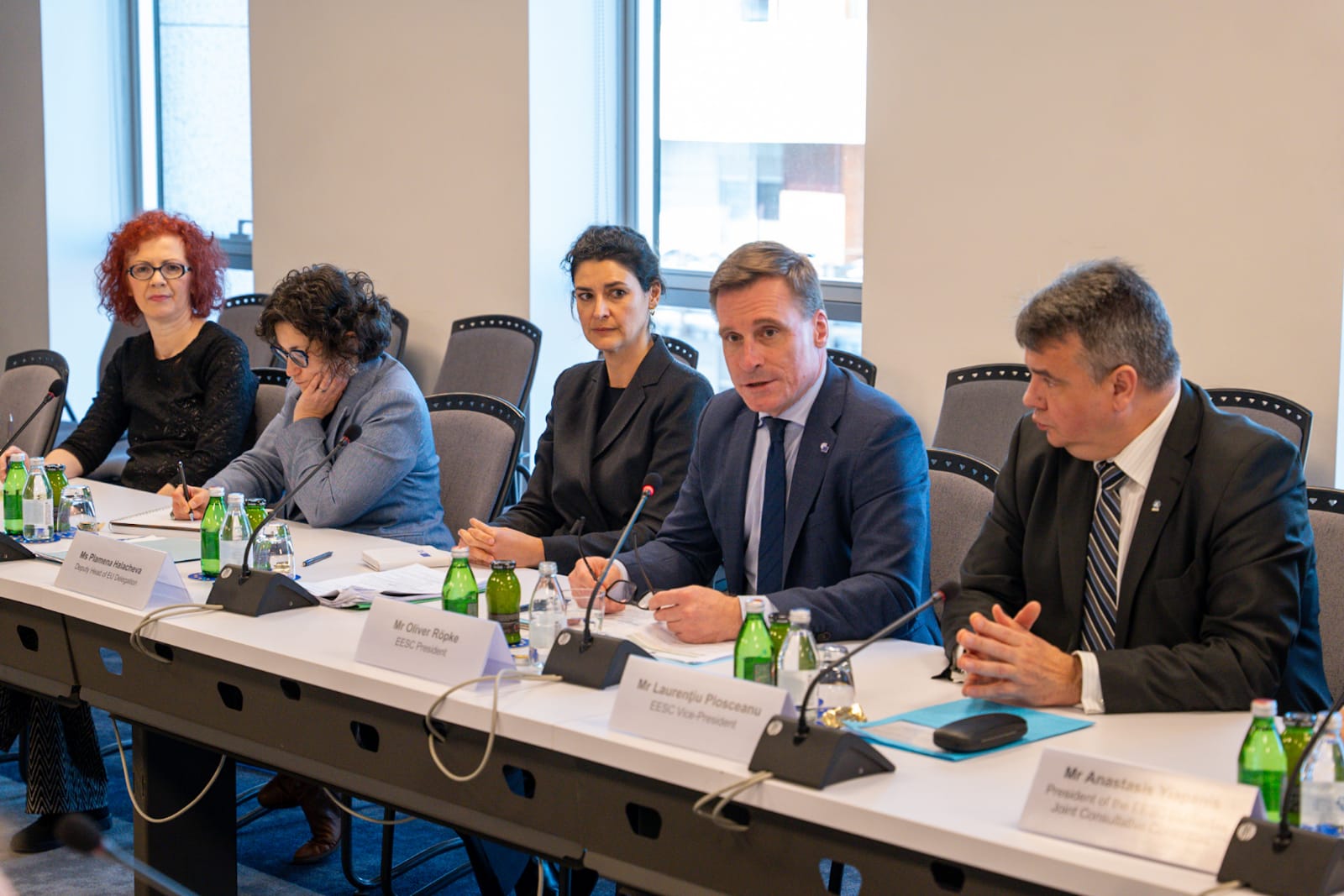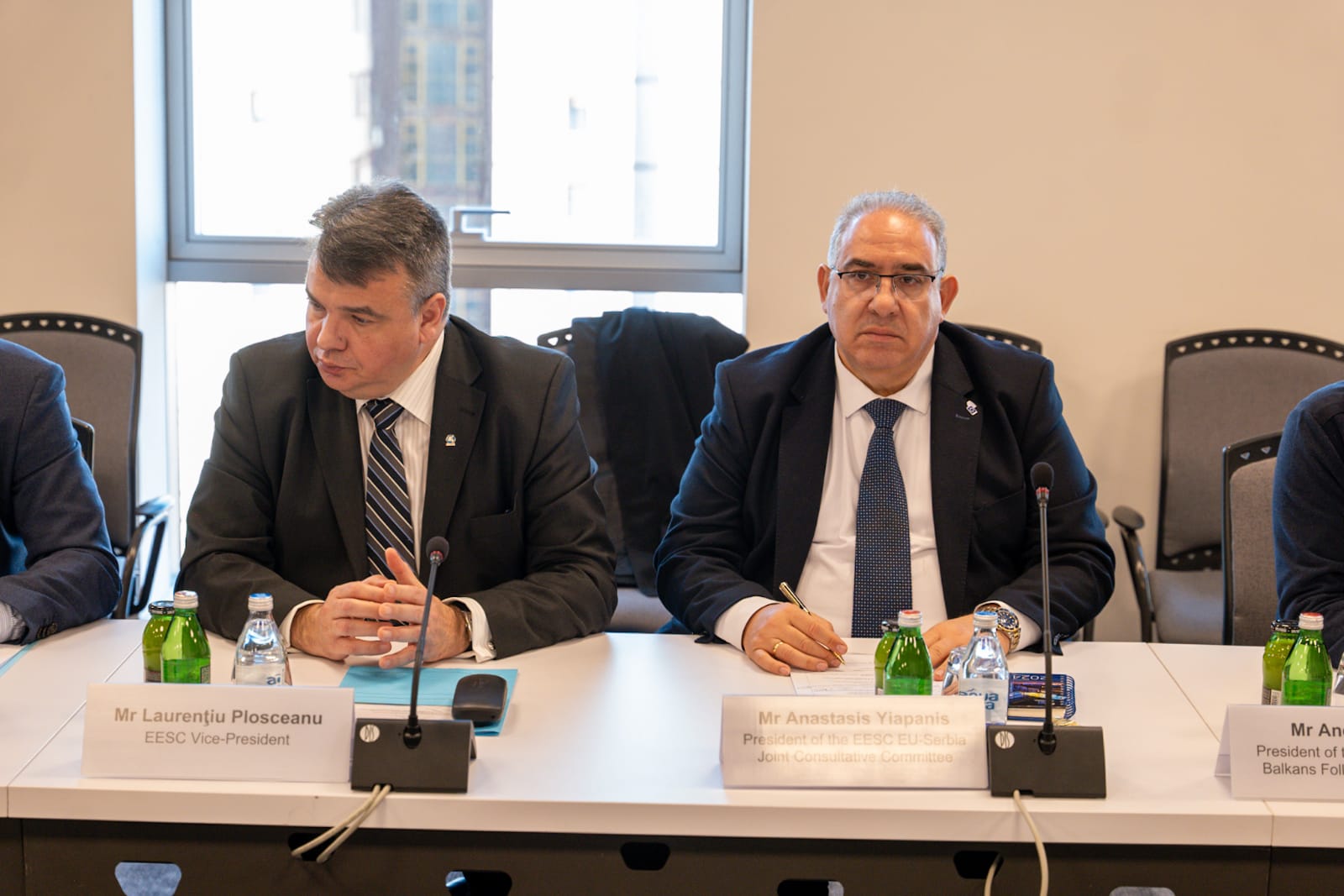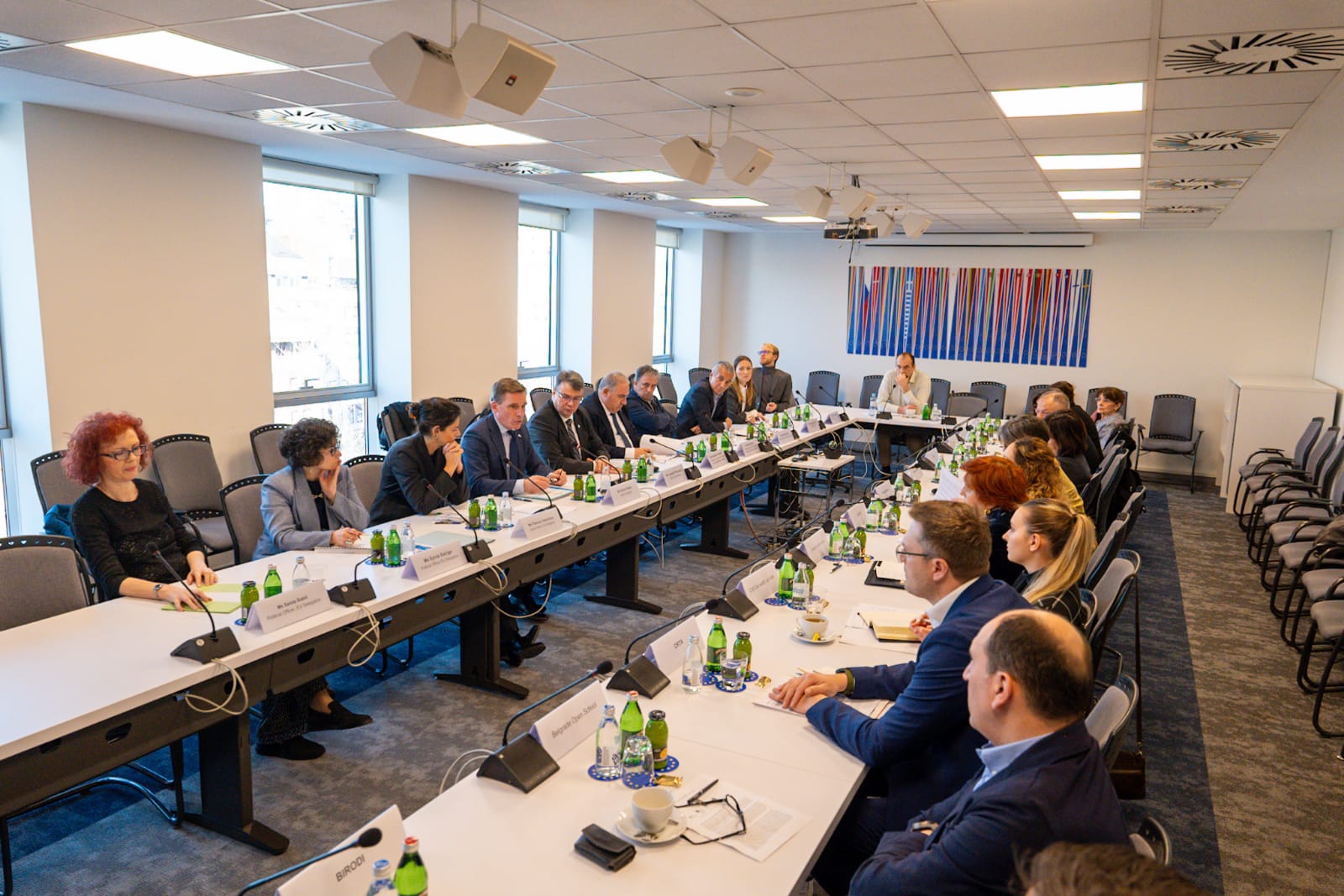European Economic and Social Committee (EESC) President Oliver Röpke visited Belgrade on Friday 16 February.
A delegation led by EESC President Oliver Röpke met, together with Acting Head of EU Delegation to Serbia Plamena Halacheva, representatives from the Serbian civil society organisations to express appreciation to the Serbian civil society in light of its enhanced participation in the work of this EU institution. The state of play of Serbia’s EU accession process, the role of civil society organisations, post-election situation in Serbia, as well as the recent European Parliament’s Resolution on Serbia were amongst the main topics raised by participants at the meeting. The representatives of the civil society warmly welcomed the recent initiative of the EESC to open its doors to candidate countries, as the first EU institution.

EESC President was accompanied by Laurenţiu Plosceanu, Vice-President of the EESC, Andrej Zorko, President of the EESC’s Western Balkans Follow-up Committee, and Anastasis Yiapanis, Co-chair of the EU-Serbia Joint Consultative Committee (JCC).
The EESC delegation also met with Tomislav Žigmanov, Minister for Human and Minority Rights and Social Dialogue of Serbia.
EESC President Oliver Röpke stated: “A vibrant civil society is a precondition for any healthy democracy. Today, I had the privilege to personally witness the courage and dedication of the Serbian civil society towards a common goal: a better, European, future for the country. I am here today to make sure that their stories, voices and concerns resonate at the EU level. Over the years, the EESC fostered strong links with the Serbian civil society, and we are now taking a step further to strengthen those ties. Thanks to “Enlargement Candidate Members” initiative the civil society representatives from EU candidate countries, also from Serbia, will now actively participate in our advisory work. As the house of the organised civil society, we will always advocate and stand for open and inclusive dialogue. We look forward to a fruitful cooperation with the Enlargement Candidate Members and we will continue our important work within the framework of the JCC. The work of our Fundamental Rights and Rule of Law Group will also be extended to EU candidate countries and we plan to visit Serbia, as one of the first countries.”

Background
The EESC is the first body of the European Union that opened its doors to representatives of civil society from EU candidate countries.
The EESC plays a key role in the decision-making process in the European Union, as the House of European organised civil society. The European Parliament, the Council of the EU and the European Commission are legally obliged to consult the EESC when adopting new laws on a wide range of topics.

Selected representatives of Serbian civil society, representing the voices of various groups of Serbian citizens, participate in advisory and all other important activities of the EESC from the beginning of 2024, with primary focus on EU enlargement. The EESC decision was taken in September 2023 with the support of all other relevant EU institutions.
The EU supports Serbian civil society with an annual budget of EUR 6-7 Million under the Civil Society Facility as well as the Human Rights and Democracy instruments. Two new calls will be open in the coming months within Civil Society Facility and Media Programme.
More information:
European Economic and Social Committee – EESC
EU-Serbia Joint Consultative Committee – JCC EU-Serbia
European Commission – Serbia Report 2023
Representatives of EU Candidate Countries join the EESC work – Press Release




